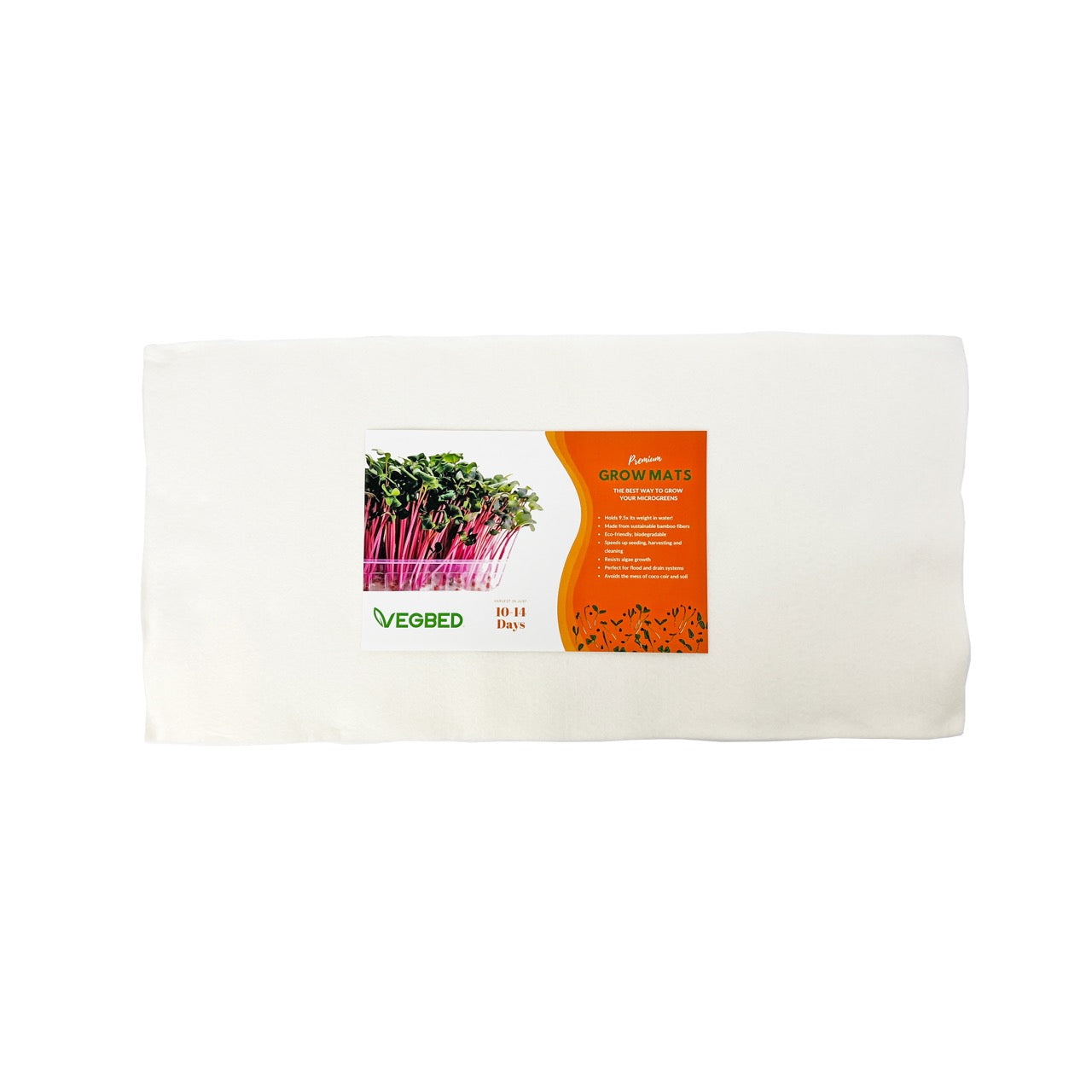Sustainability and operational practicality
Vegbed has recently conducted biodegradability testing on our grow mats so we can be more transparent and open about claiming our product's biodegradability.
A lot of products on the market (not limited to just substrates) have gone this marketing route or have claimed their products are compostable. But what does that really mean?

The BPI label is a popular one among growing substrates and especially in the packaging industry.
However, do you know where your nearest commercial composting facility is?
Do you have the means to bring all of your used substrate or other plastic packaging waste to these facilities?
What is the extra carbon footprint you’re producing to transport these compostable items to a facility?

Vertical farms, in theory/design, do not use any soil. Thus, they typically don’t have the capability of creating traditional compost. You would need up to 20 tons of compost to satisfy an acre of traditional outdoor farmland.
Most of a vertical farm’s waste ends up in a traditional landfill. So, we wanted to create and test a product in this exact environment. The logic was that if a farm can’t do composting itself or bring it to a commercial facility, we at least wanted the material to naturally biodegrade in a typical landfill.
There are products on the market that claim compostability, but under closer inspection, it is the BPI label for commercial composting. With only 27% of the US population having access to a composting service, it’s clear why there is a low participation rate.
Our testing method
To ensure our product met our sustainability standards, we recently submitted our bamboo fiber mat sample for biodegradability testing under standard ASTM D5511 at Intertek.
The test, which determines the degree and rate of anaerobic biodegradation in high-solids anaerobic conditions, showed very positive results. Vegbed's sample was exposed to a methanogenic inoculum derived from anaerobic digesters operating only on pretreated household waste.
The surprising and exciting results
Under these conditions, the bamboo fiber mat was able to achieve a percent weight loss of 87.01% after 45 days!

This was a great outcome, and much faster than we initially anticipated.
The Positive control (Reference material) also achieved 70.86% on the 27th day with less than 20% of the mean difference between the replicates. This means that Vegbed's sample was able to meet the validity requirements set by ASTM D5511.
The results of the test indicate that Vegbed's bamboo fiber mat is highly biodegradable (as seen in Graph-2b) and can decompose quickly and efficiently in high-solids anaerobic digesters treating municipal solid waste.
This is great news for Vegbed and its commitment to developing sustainable products that are kinder to the planet.

Vegbed's focus on sustainability is driven by a recognition of the urgent need to address the environmental challenges that we face today. I
ndoor and vertical farming are increasingly being recognized as a viable solution to meet the growing demand for food in a world facing climate change and other sustainability challenges.
However, it is critical that these farms operate in a way that minimizes their environmental impact.
By creating growing solutions that are biodegradable, we are trying to help shift the industry away from utilizing peat-based and other unsustainable substrates.
We hope to see more companies follow in our footsteps and prioritize sustainability in their products - without adding extra work for the farm.
For more information:
Albert Lin, CEO
albert@vegbed.com
Vegbed



